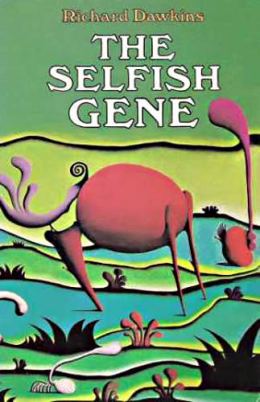
By the time The Selfish Gene was published in 1976, the phrase “survival of the fittest” had become universal shorthand for Darwin’s theory of evolutionary biology. The question Richard Dawkins proposed was: The fittest what? We were wrong to assume Darwin’s theory should operate on the level of individuals or even species, he argued. Drawing on the latest genetic science and using game theory to explain how evolution affects behavior, the Oxford zoologist concluded that it was all about survival on a cellular level: DNA vs. DNA. Genes were ultimately the whole reason for life: their sole purpose is to replicate themselves, and over eons they have created elegant, complex “survival machines” — in other words, us — to ensure their continued existence. The Selfish Genehelped shape the scientific consensus on evolution, and its influence extends even into the Internet Age: it was here that Dawkins coined the term “meme,” without which our vocabulary for describing Internet hoaxes and online videos of kittens would be much poorer.
